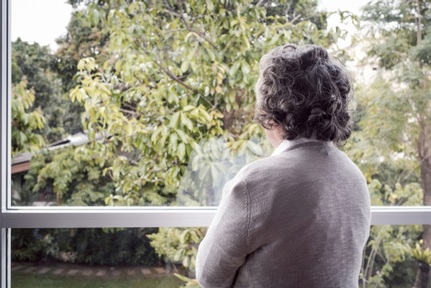'There are no vaccines for dementia' so get homes dementia-ready, say MPs
With no vaccine for dementia, ‘there is an urgent need to ensure that housing is dementia-ready from the outset’ say a cross-party group of MPs who are calling for the appointment of a cabinet minister for ageing with responsibility for housing and dementia care. 
The appointment of a minister for ageing is just one of many recommendations made in a report by the All Party Parliamentary Group (APPG) on Housing and Care for Older People.
Providers of older people’s housing are being urged to consider the design and adaptability of homes to meet the needs of people with dementia.
The report recommends both ‘hard design’ (wider doorways, accessible kitchens and bathrooms that enable independence) and ‘soft design’ (covering the auditory impact of surfaces, the use of tactile and visual cues as reminders, sign-posting, labelling). Providers are also urged to consider using the Alzheimer’s Society’s dementia-friendly housing guide.
'Every care decision is a housing decision'
‘There are no vaccines for dementia’, stated Lord Best, co-chair of the APPG, writing in the foreward to the report ‘Housing for people with dementia – are we ready?’.
‘Every care decision is a housing decision, as one of our expert witnesses told us. Get the housing right and life with dementia can be eased; a move into residential care can be avoided or postponed, and places in hard-pressed care homes kept available for others who really need them.'
The APPG’s inquiry looked at what policy changes are needed to help people live well with dementia in their own homes – from mainstream housing to specialist provision such as Extra Care Housing or Assisted Living schemes.
The inquiry discovered most people with dementia live in ordinary homes with only a minority of people living in specialist housing. This is despite evidence that living in specialist housing for older people can reduce costs to NHS and social care budgets.
Jane Ashcroft, chief executive of Anchor Hanover, which sponsored the inquiry, said: “At Anchor Hanover, we understand the importance of high-quality housing to the lives of older people – particularly for those living with dementia.
"This report highlights the massive improvements which can be made to people’s lives by housing which enables individuals to be more independent.
"The recommendations set out clear and effective ways in which the government and providers can address this major challenge, making our society more dementia-friendly and enhancing the lives of those living with dementia.”
’No agreed set of dementia design principles’
In the report, MPs stressed that dementia-ready homes can be ‘comfortable and stylish’.
‘There is currently no single agreed set of dementia design principles in use to help make new homes ready for occupants who may live with dementia now or in the future,’ the report stated. ‘When looking at design some of the biggest impacts come from things that are easy to change and not necessarily expensive.’
The inquiry highlighted that there is ‘a strong sense of making small practical adjustments to maintain independence as well as making some of the larger scale adaptations’.
Glancy Nicholls Architects has worked with local authorities to design housing for people with dementia. However, it told the inquiry that current building regulations ‘and their interpretation by building control officers can contradict some of the design preferences’, and even prevent architects from designing appropriately for people with dementia.
The APPG report revealed:
- ‘Mirrors in lifts may deter someone with dementia from entering the lift. Ideally, mirrors would be removed completely, but sometimes a compromise has been reached which includes a roller blind above the mirror.
- ‘Escape signage, particularly the ‘running man’ signs can be confusing. These should be kept to an absolute minimum. The amount of safety signage required can cause sensory overload for someone with dementia, and compromises may need to be made.’
- ‘Glazing to internal fire doors is not always desirable, especially when leading to a private space, as it may discourage a person from opening it.’

Many people living with dementia are home owners. Wendy Mitchell, who regularly speaks publicly about living with dementia, told the inquiry that living alone can be a positive experience and the decision to stay put or to move home can be a difficult one.
She said choices about when to move and the difficulty of developing new friendships, getting used to a new layout, and developing new routines can be hard.
Wendy Mitchell told the inquiry: "There are times when it is better to wait for something to happen before changing as future proofing can sometimes take away independence."
Lack of knowledge, money and will
Some 60 per cent of the people receiving home care have dementia.
Barriers to home improvements for people with dementia include lack of knowledge of what is possible, the challenge of organising the building work and paying for it. They may require the support of Disability Facility Grants but such grants are in short supply and ‘the system can be difficult and slow to access’.
The report also highlighted ‘a problem with the private rented sector being prepared to support people with dementia' as their needs change. It said some private landlords are ‘reluctant to invest in properties’ to make them dementia-ready.
In the APPG report, MPs and Peers also recommended:
- The Department for Business, Energy and Industrial Strategy (BEIS) ‘make available funding for innovation to mainstream dementia ready design and technology’.
- The Ministry of Housing, Communities and Local Government (MHCLG) support housing that is dementia-ready by amending the Building Regulations following a recent consultation on accessible design and increase the level and flexibility of Disabled Facilities Grants (DFG) and help through Better Care funding, to ensure they address dementia-ready home adaptations.
- The Department of Health and Social Care and NHS make ‘timely diagnosis’ of dementia and ensure that post-diagnosis, people are helped to ‘make decisions about their housing options’.
- Local authorities specify a proportion of the homes in all major developments that should meet older people’s housing needs.
Latest News
 29-Jul-24
Dementia Bus gives carehome.co.uk staff insight into life with dementia
29-Jul-24
Dementia Bus gives carehome.co.uk staff insight into life with dementia
 27-Jul-23
UK's top home care agencies in 2023 revealed
27-Jul-23
UK's top home care agencies in 2023 revealed
 30-Nov-22
A quarter of older people keep their falls secret from family
30-Nov-22
A quarter of older people keep their falls secret from family
 29-Nov-22
'Covid-19 has not gone away' say terminally ill
29-Nov-22
'Covid-19 has not gone away' say terminally ill
 28-Nov-22
IT consultant who received poor care opens 'compassionate' home care business
28-Nov-22
IT consultant who received poor care opens 'compassionate' home care business